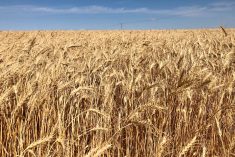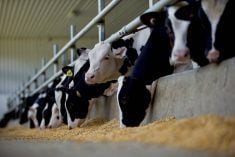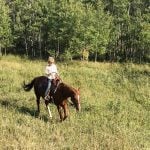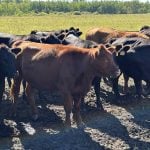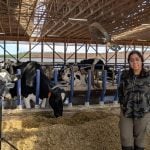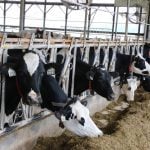CNS Canada –– A member of the RCMP’s cattle investigations unit in Alberta warns the high price of cattle seems to have drawn some unwanted attention.
Cpl. Dave Heaslip has noticed a slight influx of cattle-reported thefts this year, and believes it’s due to record-high prices on offer for heifers and steers.
“There is a marked increase, which could indicate more cattle are being stolen or that more thefts are being reported,” he said.
Heaslip and his counterparts are making convictions. In late May, an Alberta court sentenced a man to two years in jail for a million-dollar cattle theft.
Read Also

U.S. grains: Soybean futures inch higher on China trade optimism
U.S. soybean futures firmed on Wednesday as traders remained hopeful for progress in trade talks with top soy buyer China and on a Japanese proposal to increase U.S. soy purchases, deals that could help U.S. farmers avert major losses.
In that instance, the man posed as a spot buyer, financed some cattle, rented trucks, and then took them down to feedlots in the U.S. to get bigger. At first, everything looked like it was in order, but the cheque never got back to the Canadian financer, Heaslip said.
So far this year, there isn’t a firm number on missing head in Alberta, but Heaslip said it’s sizeable. One of the problems RCMP run into is owners who file reports of missing animals, but then later find them, and don’t tell the RCMP. [Related story]
It makes it difficult to know, at times, who’s missing what, he said.
Rustling cattle isn’t as hard as it sounds, according to Heaslip. “You could fit 60 heifers, 400 to 500 pounds, in a straight-haul trailer. As soon as you’ve got the first few loaded the rest will follow them up there,” he said.
Some thieves only take one animal at a time as part of a longer-term business plan. Heaslip recently came across a husband-and-wife team near Mayerthore, Alta. who would drive around to go “grocery shopping.”
If the pair could get close to a younger animal, they would lasso it, then put it in their trailer. They’d then drive to a dead-end road. If the animal was branded, they would butcher it on the spot and process the meat. If it wasn’t, they would take it home and give it to a mother cow to raise.
Heaslip said it’s clear all cattle should be branded with CCA Canadian Cattle Identification Agency tags placed in the ear.
A lot of ranchers operate with the trust of a handshake, he noted, which is what thieves count on.
“That’s what we run up against is the old western trust. That goes from Manitoba west. The trust of a handshake.”
Without a brand, though, it can be nearly impossible to return cattle to their rightful owners, even if they are found.
“You should consider branding your cattle. Those cattle are worth a lot of money. That’s like leaving $1,000 bills all over your yard.”
— Dave Sims writes for Commodity News Service Canada, a Winnipeg company specializing in grain and commodity market reporting.





